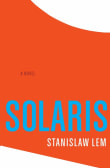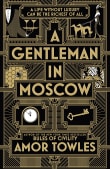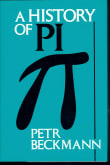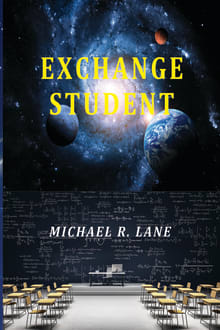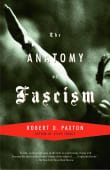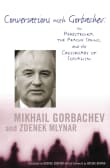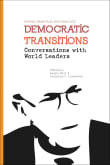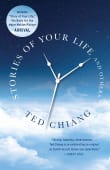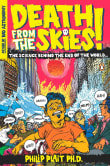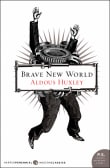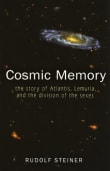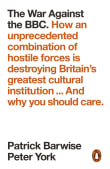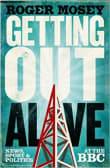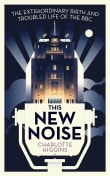1984
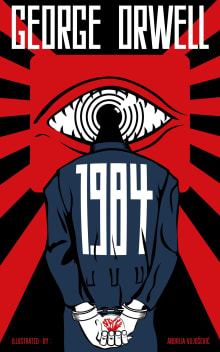
Book description
BIG BROTHER IS WATCHING YOU . . .
1984 is the year in which it happens. The world is divided into three superstates. In Oceania, the Party's power is absolute. Every action, word, gesture and thought is monitored under the watchful eye of Big Brother and the Thought Police. In…
Why read it?
50 authors picked 1984 as one of their favorite books. Why do they recommend it?

The ultimate dystopia survival story .. if you can call it survival. Although its title is only 10 years after Francine Prose’s book, it was, of course, written decades earlier by Orwell, who was looking across Europe at the totalitarian Soviet Union for his inspiration.
I read this book in junior high and have returned to it many times; contemplating Orwell’s insights about the ways authoritarian politics infect societies and destroy souls is more urgent and relevant now than ever.
From Nina's list on helping you survive and even laugh at our dystopian times.

I read this book in high school and thought it was interesting, but that it was not particularly relevant. I re-read it a few months ago and I thought, OMG, this is happening now. It is a must read for everyone who wants to understand current events and the impact on all of our lives.

This book taught me the meaning of the word “totalitarianism.” It’s like a horror movie you can’t escape from, but instead of a zombie fungus eating your mind, it’s the state controlling every little aspect of your life, down to—and worst of all—the words that you think with, and therefore what you can even conceive of.
Few books have stayed in my mind like this one. Even today—or more than ever—its images come to my mind over and over again when I see what is happening in America and the world.
From Pedro's list on satires that changed our view of the world.
If you love 1984...

Orwell is another of my favorite writers; his essays are essential reading. This novel is the culmination of his efforts, and the prose is fantastic: simple, clear, and effective. It is a delight to read and yet hard to write.
I admire how he does it. The plot is now famous, and, unfortunately, much of what he has written has come to pass. I found it hard to read again without all the public connotations invading my thoughts, but I did lose myself in the plot.
From James' list on dystopian books set in Britain.

I keep returning to this and reading different things into it every time. As with Little Man, this is not the West Wing/Thick of It classic political thriller, but it is told from the perspective of an ordinary Joe. Unlike Little Man, where the political message is woven in seamlessly, 1984 is a full-on polemic written by a man with little time left in an attempt to shape opinion. It is, though, well-plotted and hangs together really well as a novel (barring the sections where Smith reads from the book).
Often read as an anti-communist allegory, I see…
From S's list on political thrillers that are not about entertaining.

The world Orwell presents in this book is the result of a society that no longer advocates for ALL its members to pursue the ability to think freely, deeply, and effectively. The world shared in 1984 and the many similarities I see today have made me more passionate than ever about how the study of math can help people lead better lives.
I believe that developing a deep understanding of mathematical concepts, which everyone is capable of, will make people want to deeply understand everything in their world.
From William's list on help people see the necessity of effective thinking.
If you love George Orwell...

While not specifically about WWII, this is obviously a product of the conflict that Orwell, or Eric Arthur Blair, had just lived through and the psychological terrors of conflict, propaganda, double-speak, and brainwashing.
I grew up in Hayes, on the outskirts of London, where Orwell worked as a teacher in the 1930s. I later drank in the same pubs that he did. I often wondered if the woods in this book were the ones in which I had played.
The novel seems to be even more relevant now, 40 years after 1984 and almost twice as far into the future…
From Paul's list on heroism and flaws of the English during WWII.

I enjoyed this book for its excellent character development and frightening plausibility, particularly in our current political climate. The novel’s principal focus on one main character (Winston Smith) enables Orwell to delve deeply into the many potential causes and consequences of totalitarianism, which only increases the power of the narrative.
This novel has been a classic since its 1949 publication, and it remains as salient today as it was after the conclusion of WW2.
From Brian's list on thrillers that highlight the benefits and risks of cutting-edge technology.

Humans are always curious about what the future will look like. They are also concerned about the state impinging on their privacy and interfering with their lives. George Orwell masterfully combined these two human impulses in his classic novel. He wrote the book in 1949 to present his view of the future.
I read this book when I was in my mid-20s. I found it an interesting read, especially since many of his predictions did not come true. I was curious to know how past generations viewed our generation.
From Abdul's list on books to take you to the future.
If you love 1984...

Ok, so I’m probably not the first author to cite 1984 as a major influence, but I do recall reading this–the ultimate dystopian novel–while I was commuting to and from work on the London Underground (The Tube). And reading about Doublespeak and Big Brother seemed all too familiar to me as a young man living in London.
At the time, I recall saying to friends the book should have been called 2004, not 1984, because in 2004, there were more CCTV cameras in London than in any other city, the free newspapers were obsessed with the War on Terror, WMDs…
From Dan's list on dystopian books that could actually happen.
If you love 1984...
Want books like 1984?
Our community of 12,000+ authors has personally recommended 100 books like 1984.




